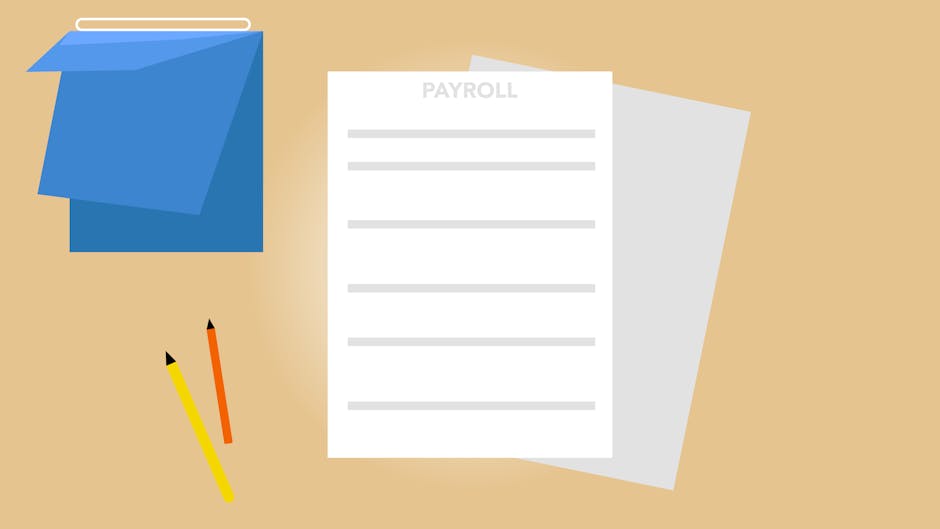How Can You Effectively Manage Debt and Minimize Financial Stress?
Having debt can be stressful, but it doesn’t have to be unmanageable. There are a variety of ways to take control of your debt and manage it in a way that allows you to reduce your stress. Here are some effective ways to manage debt and minimize financial stress.
Understand Your Current Financial Situation
The first step to managing debt is to understand your current financial situation. Knowing exactly how much debt you have and how much you owe is critical in order to develop a plan on how to best manage it. Make a list of all of your debts, including the interest rates, monthly payments and any additional fees. This will help you in determining what debts should be paid first.
Develop a Plan to Get Out of Debt
Once you have identified the debt that you have, the next step is to develop a plan to pay it off. Developing a plan to get out of debt can help you stay organized and focused on achieving your financial goals. It is important to create a plan that you can realistically achieve. Start by creating a budget and prioritize what debts need to be paid first. Consider setting up automatic payments for regular payments and extra payments when possible.
Prioritize Your Debts
Prioritizing your debts is key to paying down your debt and reducing financial stress. Prioritizing your debt repayment will help you stay focused and motivated to stay on track with your plan. There are two popular strategies used to prioritize debt payments: the debt avalanche and debt snowball methods. The debt avalanche method prioritizes paying off debts with the highest interest rates first while the debt snowball method prioritizes paying off the smallest debts first
Practice Smart Money Habits
In order to effectively manage debt and minimize financial stress, it is important to practice smart money habits. Track your spending, establish a budget and stick to it, save for emergencies, and pay down debt. Avoid using credit cards, borrow only what you need, and pay off your bills on time. Taking the time to develop good money habits can help you manage debt and reduce financial stress in the long run.
Get Professional Help When Necessary
When managing debt becomes overwhelming or if you find yourself unable to make progress towards paying down your debt, it may be time to seek professional help. Credit counseling agencies can provide assistance with budgeting, understanding how to manage your debt and the best strategies to pay down the debt. There are also debt consolidation services available that may be able to help you manage multiple debts in a more efficient way.
Resource Section
For further study and exploration, please check out these resources:

What is the best way to pay off debt quickly?
1. Make a budget and cut back on unnecessary spending.
2. Make larger payments than the minimum.
3. Work with creditors to adjust payment plans.
4. Utilize balance transfer cards with 0% interest.
5. Try the debt snowball method.
6. Consolidate debt into a personal loan.
7. Earn extra income and put it towards debt.
8. Ask family or friends for help.
What are the benefits of paying off debt quickly?
1. Improved Credit Score: Paying off debt quickly can improve your credit score as it is an indication that you can manage your money responsibly. This can open up access to better interest rates and other lending opportunities.
2. Increased Happiness: Research has shown that eliminating debt can improve overall happiness. When you have less debt, you feel more financially secure and have fewer money worries.
3. Lower Interest Charges: Paying off debt quickly reduces the amount of interest you have to pay on the original loan amount. This can make a significant difference in the overall cost of the loan.
4. Increased Cash Flow: When you pay off debt quickly, you free up cash flow that you can use on other financial goals, such as starting a business, investing in the stock market, or buying a house.
5. Reduces Stress: Having debt can be a source of stress and worry. Paying off debt quickly reduces these feelings and allows you to focus on more important things in life.
What are the consequences of not paying off debt quickly?
The consequences of not paying off debt quickly can include accruing late fees, higher interest rates, and the potential for debt collectors to get involved. Additionally, unpaid debt can adversely affect your credit score, making it difficult to get approved for loans, mortgages, or other credit in the future.
Unpaid debt may also lead to legal action, such as a lawsuit or wage garnishment, which you would have to pay for in addition to the original debt.
Furthermore, if you miss payments for extended periods of time, creditors may write off the debt as a loss, meaning that you still owe the money even though the debt is closed. This can remain on your credit report for seven years.
What are the long-term consequences of not paying off debt?
The long-term consequences of not paying off debt can include negative impacts to your credit score, difficulty obtaining future credit, wage garnishment and even legal action, such as foreclosure or bankruptcy. Long-term financial issues associated with unpaid debt can also lead to mental health issues such as stress, anxiety, and depression. Finally, not paying off debt can lead to a loss of assets or a considerable amount of stress due to constant calls and letters from creditors.
What is the impact of not paying off debt on credit score?
Not paying off debt will have a negative effect on your credit score, potentially making it more difficult to acquire new forms of credit. Not paying off debt could lead to default, which will be reported to credit bureaus, leading to lower credit scores. Additionally, overdue payments can also hurt your credit score and may remain on your credit report for up to seven years.
What happens if you default on a loan?
If you default on a loan, the lender may take legal action to collect the amount that you owe. This could include taking money from your wages or your bank account, placing a lien on property, or selling your assets. The lender may also report the default to the credit bureaus, damaging your credit score and making it hard to get credit in the future. Additionally, the lender may also charge you fees for late payments or collection actions.
What happens if I miss a loan payment?
If you miss a loan payment, it will have a negative impact on your credit and could lead to late fees. Depending on the type of loan and the lender, you may also face additional penalties or fees. You should contact your lender as soon as possible if you anticipate being unable to make a payment. Your lender may be able to provide you with assistance, such as deferment or forbearance. If you do miss a payment, make sure to keep up with all future payments in order to limit the impact on your credit score.
What penalties will I face if I miss a loan payment?
The penalties for missing a loan payment will vary depending on the type of loan and the lender. Generally, the penalty will be a late fee as well as an increase in your interest rate. In some cases, the lender may also report the missed payment to the credit bureaus, which could hurt your credit score. Additionally, some loan agreements may include additional penalties, such as a prepayment penalty or an additional fee if you fall behind on payments.
What happens if I miss multiple loan payments?
If you miss multiple loan payments, it could have severe consequences. Depending on the type of loan you have, the lender could eventually pursue legal action, such as a wage garnishment or repossession. Additionally, it can negatively impact your credit score, which would make it more difficult for you to get approved for loans and credit lines in the future.
What penalties might I incur for missing multiple loan payments?
If you miss multiple loan payments, you may face punitive measures such as late fees, late payment penalties, higher interest rates, or even legal action from your lender. Depending on the loan provider and the terms of the loan, you may also have your credit score negatively impacted. In some cases, missing multiple loan payments could result in debt collection actions or even foreclosure proceedings if it’s a mortgage loan.
What will happen if I miss a loan payment?
If you miss a loan payment, it can have serious consequences. Depending on your lender, your loan may be considered in default and they may take action to retrieve the full amount due. This could include using a collections agency to collect the debt, or taking legal action.
Missing loan payments also affects your credit score, and may make it harder to obtain loans or other forms of credit in the future. The exact consequences will vary according to the individual lender and type of loan, so it is important to review the loan agreement carefully before signing.
Q: Can I go to jail for missing a loan payment?
No, you cannot go to jail for missing a loan payment. However, depending on the type of loan you have and the terms of the loan agreement, the lender could take legal action against you in order to collect on the debt. This could include such measures as wage garnishment or seizing assets to cover the unpaid amount.
Q: What are the consequences of missing a loan payment?
The consequences of missing a loan payment vary depending on the kind of loan. Generally speaking, however, most loans for which payments are not made on time will incur a late fee and will cause the individual’s credit score to decrease. It can also affect the individual’s ability to qualify for future loans and credit cards. In some cases, the lender may decide to sue the borrower for non-payment.
